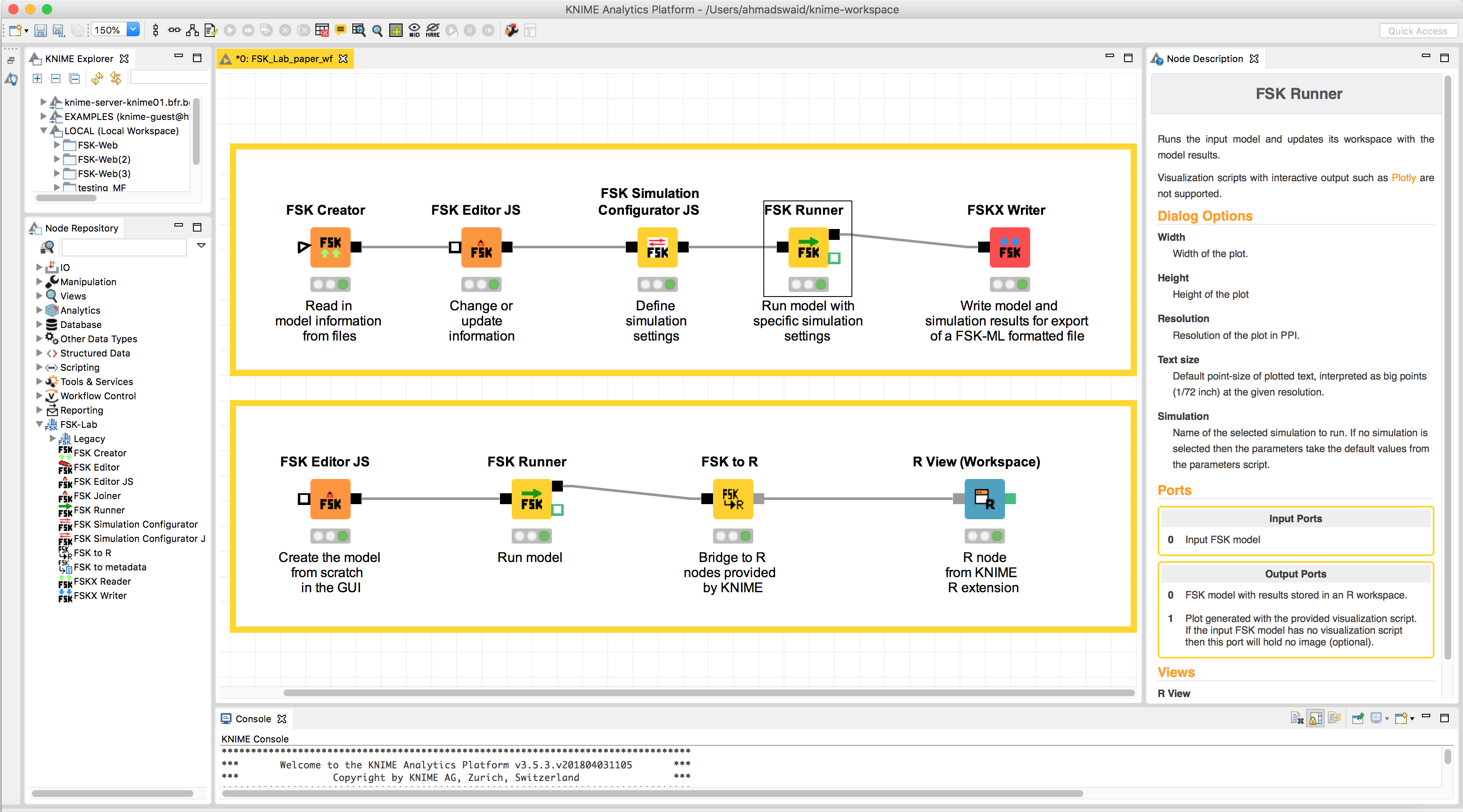In the last decades a large number of models have been developed in the quantitative microbial risk assessment (QMRA) and predictive microbiology (PM) domains. These models were generated with different scripting languages (e.g. R, MATLAB), commercial tools (e.g. @Risk) or even proprietary software tools (e.g. FSSP, FDAiRISK). The heterogeneity in software tools used to generate models together with the lack of a harmonized model exchange format has made the (re)-use of existing models in different software tools or simulation environments very difficult.
The adoption of a harmonized information exchange format called Food Safety Knowledge Markup Language (FSK-ML) would be a solution to this challenge. FSK-ML defines a framework for encoding all relevant data, metadata and model scripts in a machine-readable format. A specific feature of FSK-ML is that it allows the user to provide model scripts in different scripting languages (e.g. R, Perl, Python or MATLAB). Model metadata can be provided in accordance with the metadata schema and controlled vocabularies proposed from the Risk Assessment Knowledge Integration Platform (RAKIP) community.
In order to achieve a broad adoption of FSK-ML by the scientific community it is however of extraordinary importance to provide support in terms of easy to use software solutions. In fact, it has to be as simple as possible for the end-user to create, export, import or modify standard-compliant files. Food Safety Knowledge Lab (FSK-Lab) represents such a user-friendly software tool that can create, read (import), write (export), execute and combine FSK-ML compliant objects. All metadata needed to annotate a model can also be entered and edited through FSK-Lab. It also allows generating (export) files that comply with FSK-ML and that carry the file extension “.fskx”. This ensures that all information on a model is contained in this information exchange file and that the user does not have to write and compile FSK-ML files “by hand”.
FSK-Lab extends the open source Konstanz Information Miner (KNIME) data analytics platform (URL: www.knime.org), which is a graphical programming framework allowing users to create data analysis workflows from building blocks (so called nodes). Within FSK-Lab, each node has a specific task e.g. model creation can be performed with the “FSK Creator” node. As a KNIME extension, FSK-Lab allows the user to execute and integrate code from several programming languages, like Java, R, Python. All FSK-Lab software code is freely available under the GNU public license version 3.

Screenshot of the FSK-Lab toolkit which is integrated into the KNIME software. The customizable KNIME software graphical user interface is comprised of five panes (windows): KNIME Explorer–providing an overview on all workflows in the active workspace (upper-left); Node Repository–displaying all available nodes structured into so called libraries–including the FSK-Lab node library (lower left); Workflow Editor–an interactive workflow generation, modification and execution view, here with two workflows (center); Console–place where warnings or error message are displayed to the user (bottom); and Node Description–place where the functionalities and possible settings of each node are described (upper right).
FSK-Lab Reference
Miguel de Alba Aparicio, Tasja Buschhardt, Ahmad Swaid, Lars Valentin, Octavio Mesa-Varona, Taras Günther, Carolina Plaza-Rodriguez, Matthias Filter
FSK-Lab – An open source food safety model integration tool
Microbial Risk Analysis. 2018, 10:13-19.
doi.org/10.1016/j.mran.2018.09.001